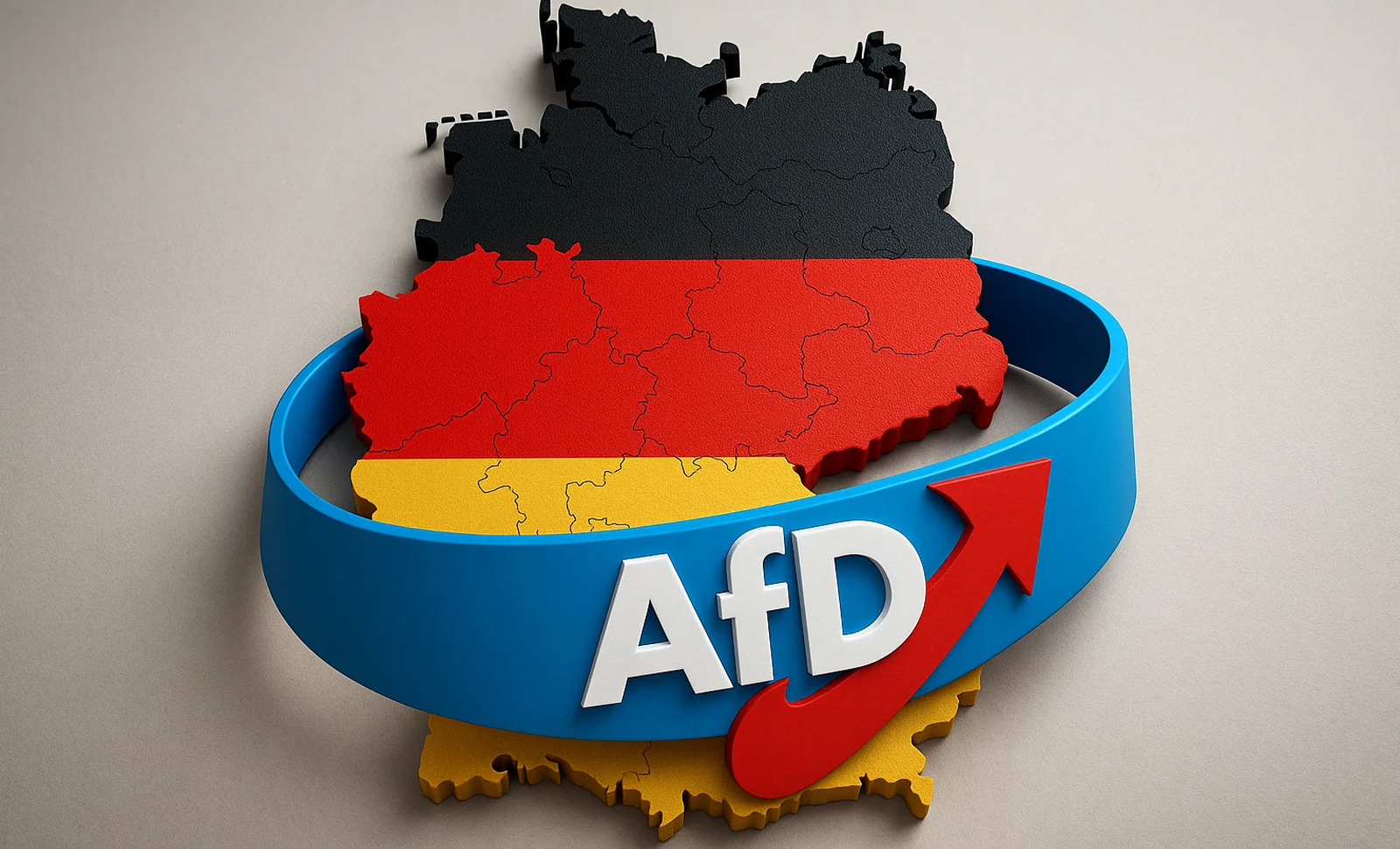Germany is grappling with a troubling resurgence of far-right ideology as the country’s postwar democratic identity comes under renewed strain. The far-right party Alternative für Deutschland (AfD) has seen a dramatic surge in popularity, rekindling fears of a reawakening extremist mindset rooted in Germany’s Nazi past. In the February 2025 federal elections, AfD captured 20.8% of the national vote, coming in second only to the CDU/CSU alliance. This marked a nearly 10-point increase from the 2021 elections, signaling a deep shift in the political landscape. In polls conducted by May 2025, AfD’s support had risen further to 24-25%, putting it nearly neck-and-neck with mainstream conservative parties.
State-level elections revealed even starker trends. In Thuringia, AfD became the leading party with 33% of the vote, while in Saxony and Brandenburg, it achieved 30.6% and 29.2%, respectively. The party’s stronghold remains in the eastern parts of Germany, particularly among older, less-educated male voters who feel alienated by current migration and economic policies. These electoral gains coincided with a major escalation in the government’s response. In May 2025, Germany’s domestic intelligence agency, the BfV, officially labeled the AfD as a right-wing extremist organization. This decision, based on an extensive 1,100-page classified report, permits intelligence surveillance and limits AfD members from holding public service roles, including in schools, police, and civil institutions.
The public backlash against the far-right was fierce following a shocking revelation in early 2024. Investigative outlet Correctiv exposed a secret gathering in Potsdam involving AfD members, far-right ideologues, and neo-Nazi figures, where plans were discussed for the mass deportation of migrants and people of foreign descent referred to as “remigration.” The exposé triggered nationwide protests, with more than 1.4 million Germans demonstrating across cities like Berlin, Munich, and Hamburg in January 2024. Although the AfD’s popularity briefly dipped following the scandal, it rebounded quickly, highlighting the deep-rooted nature of the ideological divide.
Adding to the urgency, German authorities in May 2025 arrested five teenage boys aged 14 to 18 in connection with a far-right domestic terror cell called “Last Defence Wave.” The group had reportedly planned attacks on migrants and left-wing politicians, and were linked to arson and attempted murder cases. Investigations uncovered their extensive use of Telegram and Instagram to coordinate violent plans. The Federal Office for Criminal Investigation revealed that right-wing violence rose by 17% in 2024, with many new cases involving minors. Justice Minister Stefanie Hubig expressed deep concern over the radicalization of youth, warning that far-right extremism is evolving in both strategy and demographic reach.
The rise in support for AfD and the growing number of extremist incidents have prompted policy shifts from the federal government. In July 2025, Germany, along with five EU allies, proposed stricter asylum policies, including offshore processing centers, more deportations, and penalizing countries that refuse to take back their citizens. The newly elected Chancellor Friedrich Merz has pushed for the deportation of rejected asylum seekers, notably overseeing the removal of 81 Afghan nationals in June 2025. Critics argue that such measures reflect the influence of AfD’s populist rhetoric on mainstream policy rather than addressing the root causes of discontent.
The Nazi legacy has never been far from Germany’s political consciousness, but recent developments suggest a growing normalization of ideas once considered beyond the pale. Senior AfD members have previously referred to the Nazi period as “a speck of bird poo on 1,000 years of glorious history,” and have refused to clearly distance themselves from such views. Human rights groups and historians warn that the increasing overlap between far-right rhetoric and national policy signals a dangerous erosion of the postwar consensus that once defined modern Germany. As political polarization intensifies, and with youth increasingly exposed to online extremist networks, the country faces a reckoning not just with its history, but with the possibility of repeating it.















